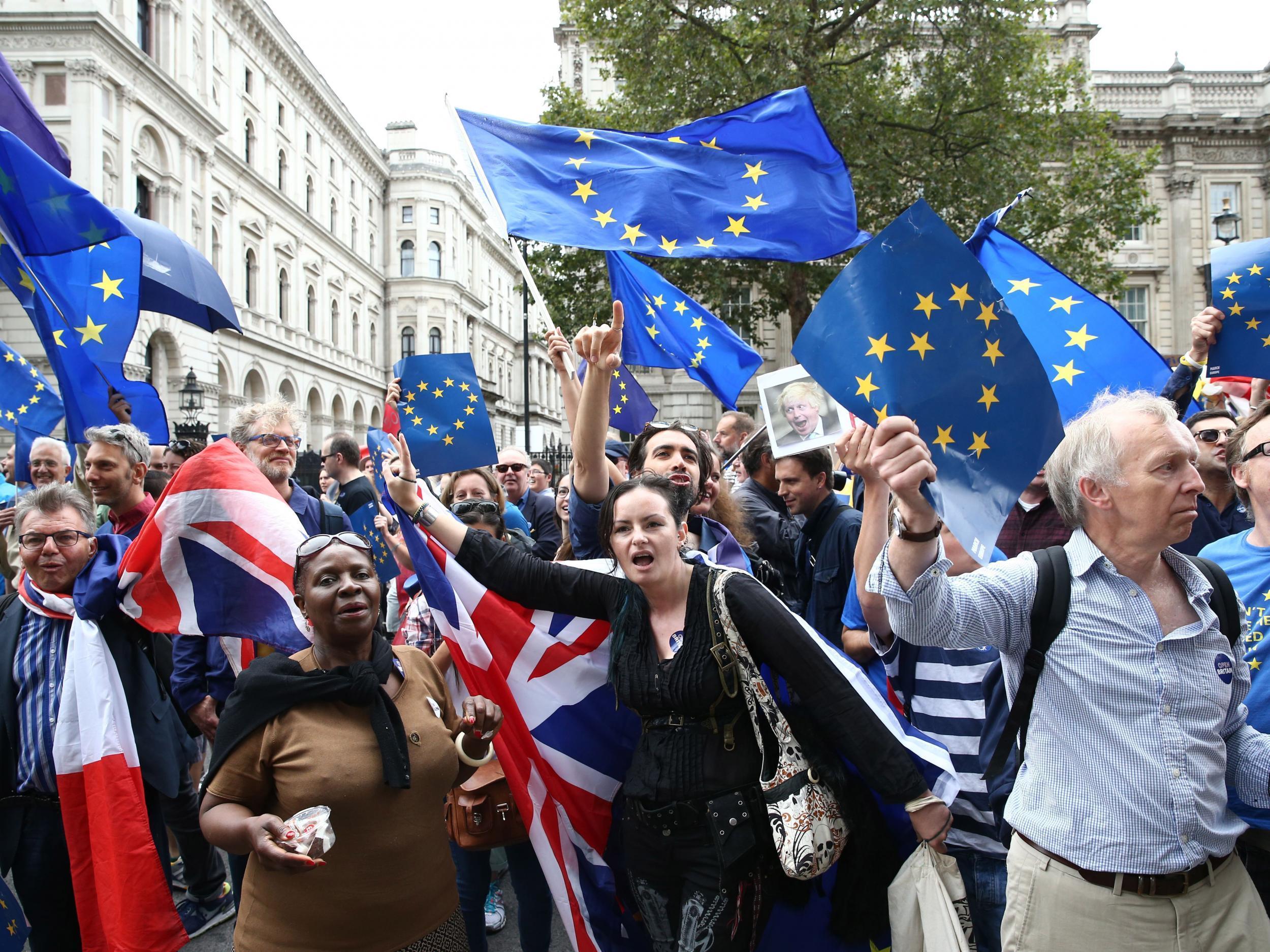Britons must be offered ‘associate EU citizenship’ whatever the outcome of May’s Brexit negotiations, says MEP
Retaining partial membership of the EU would allow UK nationals to travel and work freely inside the bloc

Your support helps us to tell the story
From reproductive rights to climate change to Big Tech, The Independent is on the ground when the story is developing. Whether it's investigating the financials of Elon Musk's pro-Trump PAC or producing our latest documentary, 'The A Word', which shines a light on the American women fighting for reproductive rights, we know how important it is to parse out the facts from the messaging.
At such a critical moment in US history, we need reporters on the ground. Your donation allows us to keep sending journalists to speak to both sides of the story.
The Independent is trusted by Americans across the entire political spectrum. And unlike many other quality news outlets, we choose not to lock Americans out of our reporting and analysis with paywalls. We believe quality journalism should be available to everyone, paid for by those who can afford it.
Your support makes all the difference.Britons could be offered “associate citizenship” of the European Union after Brexit even if Theresa May blocks the plan, the MEP who drafted the proposal has said.
“Associate citizenship” remains a “realistic” ambition and Brussels should make it available to UK nationals even if the British Government vetoes the plan during negotiations, Charles Goerens said.
Commenting in the wake of the Government’s Brexit White Paper, he said he was increasingly hopeful that his proposal would be offered to the UK once it quits the bloc.
In November, The Independent revealed that a plan for “associate citizenship”, proposed by Mr Goerens, was being considered by the European Parliament.
It would allow UK nationals who applied for EU citizenship to work anywhere inside the union as well as giving them a vote in European Parliament elections – while retaining their British passport.
The Luxembourg MEP said there was no real opposition to the policy from his fellow lawmakers in Brussels and Strasbourg, who will be given the final say on the Brexit deal in a vote at the European parliament.
And he said the EU’s negotiators should make it a red line in future discussions, adding that eventual treaty change was in the interests of those on both sides of the Channel.
The proposal has offered hope to many who fear Britain is closing itself off from Europe and the opportunities it provides.
Ms May outlined the Government’s negotiating position in a speech at Lancaster House in January, followed last week by a Government White Paper.
Mr Goerens said the Prime Minister’s remarks were “very positive” and showed she understood there was a “real problem” for Britons living both in the UK and Europe.
“Theresa May’s proposal is a step in the right direction,” he told The Independent in a phone interview from Brussels.
“The White paper was a clear signal that I was not totally unrealistic by launching the idea of European ‘associate citizenship’.
“It is for technical reasons that she wasn't more outspoken on this issue.
“She sent a clear signal that she has understood that there is a real problem. Let’s not be too pessimistic about that."
“European ‘associate citizenship’ is still on the agenda of the European Parliament,” he continued.
“You can say on the one hand that it is not a solution that would be in line with today's legislation, with European law, but on the other hand if there is a political will we can overcome the obstacles to it.
“We can have treaty change, we can have political process on the conviction that European citizenship, or ‘associate citizenship’, is in everybody’s interest.”
If the proposal is included in the final Brexit deal that MEPs will vote on at the end of the two year negotiating period, Mr Goerens said he was confident it would be passed.
“As far as I see, there is no real opposition unless you talk to the right-wing parties represented in the European parliament, and some fanatic Brexiteers,” he said.

“It is up to politicians to react and to take initiative. It is up to us to move the lines, we are not only the observers, we are the actors.
“The European Parliament will have the last say on the arrangement between the European Commission and the UK, we have a good opportunity to make clear our views on what should be the outcome of this process, and one of the outcomes is the status of people most negatively affected by Brexit.”
Opposition to the plan may come in the form of hard-line Eurosceptics, who claim associate membership of the EU would dilute Brexit and create a two-tier system that would undermine British citizenship.
Those concerns may be enough to convince Ms May to veto the proposal from Mr Goerens and his colleagues in the European Parliament.
But the MEP said 'associate citizenship' should be offered to Britons regardless of any reciprocal offer or concession made by the UK.
He said: “Even if there were no move made in this direction by the United Kingdom, in my view we should even unilaterally offer the European associate citizenship to UK citizens because it would be in everybody’s interest to act in this way.
“It is still achievable because once Brexit is concluded people will be stripped of all their rights linked to European citizenship. We must launch this process in a pragmatic way, but why should it not be practical?”
Join our commenting forum
Join thought-provoking conversations, follow other Independent readers and see their replies
Comments